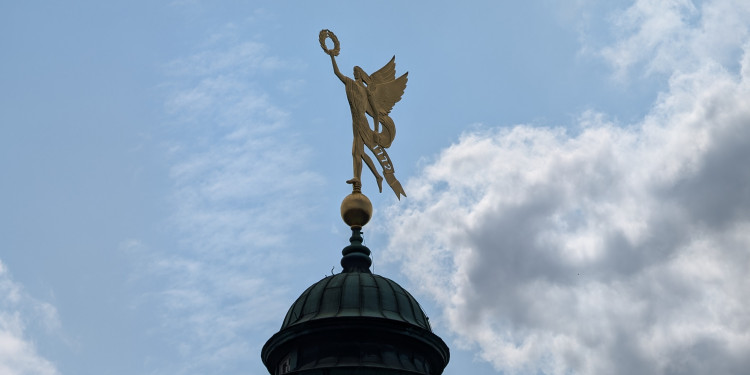
Excellence Strategy: University submits two renewal proposals
Today, August 22, is an particularly important day for the University of Münster, as well as for many other universities in Germany, because it sees the deadline for submitting Cluster of Excellence proposals. A total of 41 projects were allowed to submit a full proposal to the German Research Foundation (DFG) and the Wissenschaftsrat (WR, German Science and Humanities Council). Over the past weeks, researchers at the “Religion and Politics” and “Mathematics Münster” Clusters of Excellence have been working with high pressure on their renewal proposals to make them scientifically future-orientated. Now they will need to exercise patience while an international commission of experts assesses the applications over the coming months. Decisions on approval for funding are set to be made in May 2025, with any funding thus approved due to begin at the start of 2026. “The Excellence Strategy is an extremely demanding competition, and there are a lot of competitors,” says Rector Prof. Johannes Wessels. “We are convinced that we have positioned ourselves well positioned with the two applications and therefore confidently await the decision in spring next year.”
Profiles of the two Clusters of Excellence:
“Religion and Politics. Dynamics of Tradition and Innovation”
• Since 2007 the Cluster has been studying the complex relationship between religion and politics from the ancient world up to today
• It is the largest research alliance of its kind in Germany, and the only Cluster of Excellence working on the subject of religion
• We have more than 150 researchers from 25 disciplines in the Humanities and the Social Sciences
• Every year, the Hans Blumenberg professorship brings top-level researchers to Münster; in summer 2024 it is American philosopher Kwame Anthony Appiah
• Beginning in 2025, the Campus of the Theologies and Religious Studies will be bringing together the University of Münster’s Protestant, Catholic and Islamic Theologies, as well as Religious Studies, in the city of the Peace of Westphalia
• Total funding of 31 million euros from 2019 to 2025
• Spokeperson: Prof. Dr. Michael Seewald and Prof. Dr. Ines Michalowski
“Mathematics Münster: Dynamics – Geometry – Structure”
• Set up in 2019
• Mathematics Münster advances cutting-edge research by implementing integrated approaches to solve fundamental problems across various mathematical disciplines. These approaches combine different techniques, perspectives, or fields of expertise to address challenges comprehensively.
• Focus on ten research topics, each of which incorporates several fields of mathematics and which are organised in three main overarching areas: Invariants and Foundations; Non-linear Spaces and Operators; and Models, Approximations and Data.
• Around 200 members, with 50 investigators and 150 researchers on international graduate and postdoc programmes.
• “Centre of Mathematics Münster” (CMM) research centre to be opened in 2026 at Coesfelder Kreuz
• Total funding of 25 million euros from 2019 to 2025
• Spokespersons: Prof. Dr. Thomas Nikolaus and Prof. Dr. Mario Ohlberger
The Excellence Strategy
With the Excellence Strategy, the national and regional state governments in Germany are aiming to strengthen Germany’s top-level research in areas that are internationally competitive, to institutionally strengthen German universities, and to advance the development of the German higher education system. To do so, the Excellence Strategy comprises two separate but intertwined funding lines:
The aim of the Cluster of Excellence funding line is to strengthen outstanding fields of research at individual universities or in alliances of universities. As large, high-performing centres, they network both nationally and internationally, collaborating with a variety of different partners. The clusters are funded with three to ten million euros per year for a period of seven years. Currently, a total of 57 Clusters of Excellence have been receiving funding since January 2019.
As regards the second funding line, Universities of Excellence will be named in 2026. If universities or inter-university research alliances wish to submit an application in this funding line, they must have at least two Clusters of Excellence. Universities of Excellence or Research Alliances of Excellence receive money for the purpose of further strengthening their institutional profile and their international standing in the world of research on the basis of their Clusters of Excellence. Currently, there are ten universities and one inter-university research alliance which are receiving funding. Every seven years, they must submit to being evaluated and must demonstrate that they continue to meet the funding requirements. The decision on funding will be made in 2026, with the project starting on 1 January 2027.
